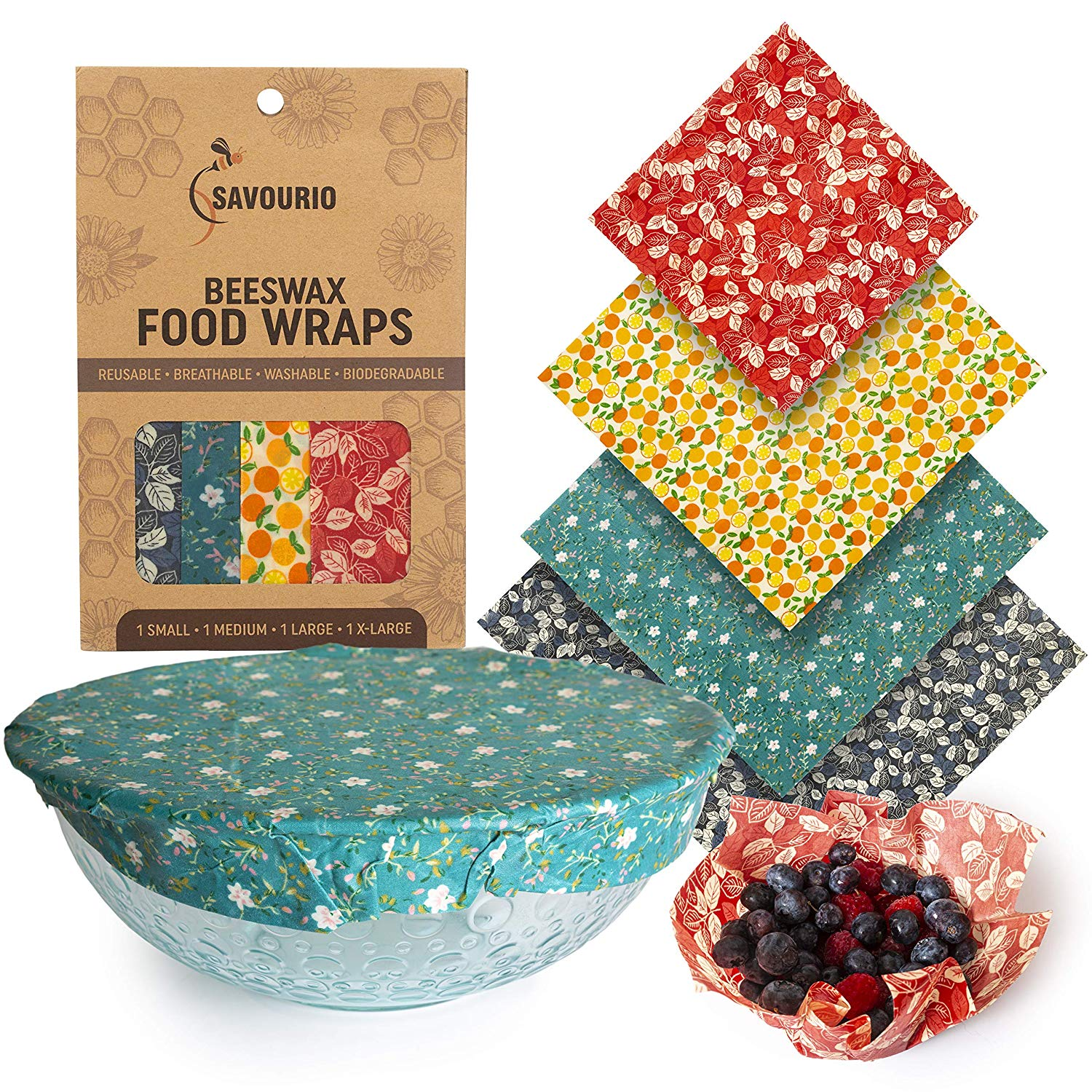
Beeswax is a natural and versatile ingredient that is used in many products, but its production process and use can have a negative impact on bees and their ecosystems. For those who prefer to avoid using beeswax, there are several sustainable alternatives available.
One popular alternative to beeswax is soy wax, which is made from soybeans. Soy wax is commonly used in candle-making and can also be used in cosmetics as a substitute for beeswax. It is a renewable resource and is biodegradable, making it an environmentally friendly option.
Another sustainable alternative to beeswax is carnauba wax, which is derived from the leaves of the carnauba palm tree. It is commonly used in cosmetics as a thickening agent and emulsifier. The production of carnauba wax is sustainable, as the leaves of the carnauba palm tree are harvested without harming the tree itself.
Candelilla wax is another alternative to beeswax that is derived from the leaves of the candelilla shrub. It is native to Mexico and the southwestern United States, and is often used in cosmetics and can also be used to make candles.
Rice bran wax is a by-product of the rice bran oil manufacturing process and is often used in cosmetics as a thickening agent and emulsifier. It is a sustainable alternative to beeswax, as it is a by-product of another industry and is therefore environmentally friendly.
In addition to these options, there are many vegan waxes available on the market made from plant-based ingredients such as sunflower wax, olive wax, and rice wax. These waxes are sustainable and cruelty-free, making them a great alternative to beeswax for those who prefer not to use animal products.
There are several sustainable alternatives to beeswax that are environmentally friendly and cruelty-free. By using these alternatives, we can reduce our impact on the environment and help protect the bees and their ecosystems.
Is using beeswax sustainable?
Beeswax can be considered a sustainable material, as it is a natural, renewable resource that can be harvested without harming bees. Beeswax is a byproduct of honey production, and it is produced by worker bees to construct honeycomb cells to store honey and raise young bees.
When harvested sustainably, beeswax can be a more eco-friendly alternative to synthetic materials, as it is biodegradable and does not release harmful chemicals into the environment. It can also be used in a variety of products, such as candles, skincare, and furniture polish.
However, it is important to note that not all beeswax is produced sustainably. Some commercial beekeeping practices may involve the use of pesticides or antibiotics, which can harm bees and reduce the sustainability of beeswax production. Therefore, it is important to source beeswax from responsible beekeepers who prioritize the health and well-being of their bees.
Beeswax can help the environment in several ways:
Biodegradability: Beeswax is a natural and biodegradable material. It can break down naturally in the environment without causing harm or pollution. This makes it a more sustainable option compared to synthetic materials, which may take many years to break down and can cause environmental harm.
Non-toxic: Beeswax is a non-toxic material that does not release harmful chemicals or pollutants into the environment. This is important for human health and the health of the ecosystem.
Alternative to petroleum-based products: Beeswax can be used as an alternative to petroleum-based products, which are a major source of environmental pollution. For example, beeswax can be used to make natural candles instead of paraffin wax, which is derived from petroleum.
Pollination: Beeswax is produced by honeybees, which are important pollinators for many plants. By using beeswax products, we can support beekeeping and help promote the health of honeybee populations.
Sustainable production: When harvested sustainably, beeswax can be more eco-friendly than synthetic materials, as it is produced by bees without harming them. Sustainable beekeeping practices prioritize the health and well-being of bees and can support the health of the ecosystem.
Overall, beeswax can help promote sustainability and environmental health when produced and used responsibly.
What is the problem with beeswax?
There are a few potential problems associated with beeswax, including:
Unsustainable production: While beeswax can be produced sustainably, some commercial beekeeping practices may involve the use of pesticides or antibiotics, which can harm bees and reduce the sustainability of beeswax production.
Allergic reactions: Some people may be allergic to beeswax, which can cause skin irritation, itching, or other allergic reactions. This can be a problem for individuals who want to use beeswax-based products for personal care or other purposes.
Animal welfare concerns: While beeswax can be produced without harming bees, some animal welfare advocates argue that the commercial use of beeswax can contribute to exploitation and harm to bees. Some beekeepers may prioritize production and profit over the welfare of their bees, which can lead to overharvesting, stress on the bees, and other negative impacts.
Resource intensive: The production of beeswax requires a lot of resources, including the labor of bees, time, and energy. This can be a challenge for beekeepers who may struggle to maintain healthy colonies or produce enough beeswax to meet demand.
Limited availability: Compared to synthetic materials, the availability of beeswax may be limited, depending on the region and the availability of beekeeping resources.
It’s important to note that many of these potential problems can be addressed through sustainable and responsible beekeeping practices, as well as increased awareness of the environmental and social impacts of beeswax production and use.
Why is beeswax wrap eco-friendly?
Beeswax wrap is considered eco-friendly because it is a reusable and biodegradable alternative to single-use plastics, which are a major source of environmental pollution. Beeswax wrap is made from a combination of cotton or hemp fabric and beeswax, along with other natural ingredients like jojoba oil and tree resin. Here are some of the reasons why beeswax wrap is eco-friendly:
Reusability: Beeswax wrap can be used multiple times, making it a more sustainable option than single-use plastic wrap or aluminum foil. With proper care and maintenance, beeswax wrap can last for several months, and it can be washed and reused many times.
Biodegradability: When beeswax wrap reaches the end of its useful life, it can be composted or disposed of in a way that allows it to biodegrade naturally. Beeswax wrap is made from natural materials that break down over time, without causing harm or pollution to the environment.
Natural materials: Beeswax wrap is made from natural and non-toxic materials, like cotton, beeswax, and tree resin, which are not harmful to human health or the environment.
Low carbon footprint: Beeswax wrap has a lower carbon footprint than plastic wrap, as it is typically produced locally and does not require the use of fossil fuels or other non-renewable resources in its production.
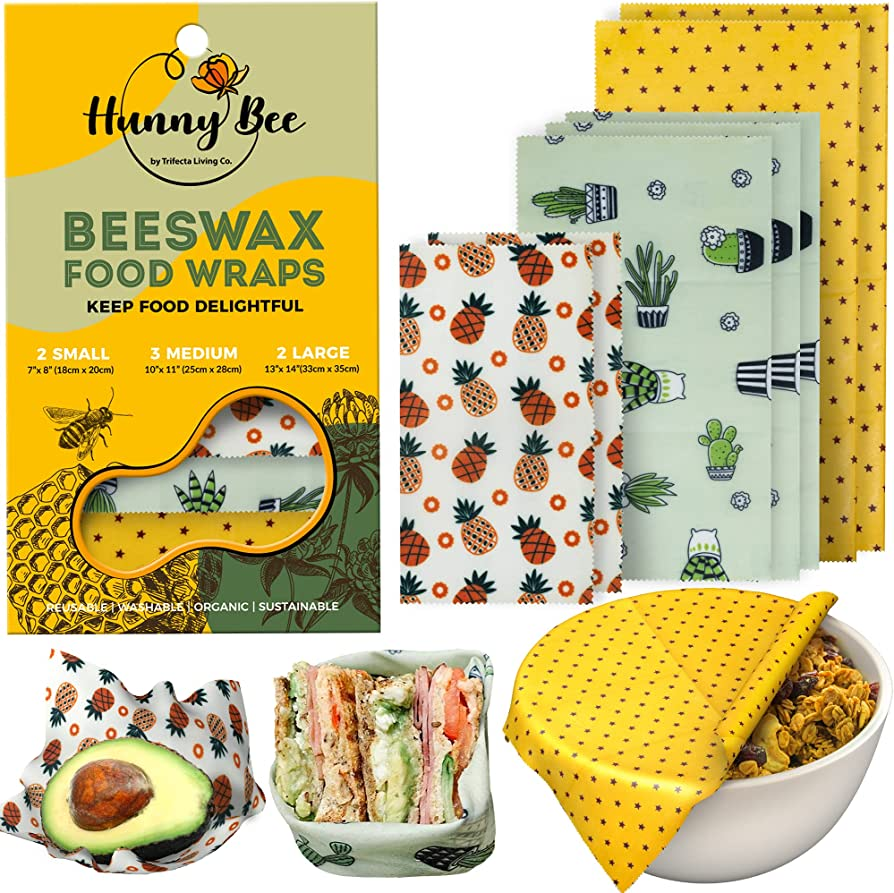
Why do vegans not use beeswax?
Many vegans choose not to use beeswax because it is a product derived from animals, specifically from bees. Vegans, by definition, choose to abstain from using animal products and byproducts for ethical reasons. While beeswax is not produced by killing bees, some vegans view it as an exploitation of bees, as commercial beekeeping practices may prioritize the production and profit over the welfare of the bees. In addition, some vegans may also be concerned about the potential environmental impacts of beeswax production, such as the use of pesticides and other chemicals in beekeeping practices.
Furthermore, there are plant-based alternatives to beeswax, such as carnauba wax or candelilla wax, which can be used as substitutes in many applications. These plant-based waxes offer similar properties to beeswax, including waterproofing and adhesion, and can be used as an alternative in vegan-friendly products.
In short, vegans avoid beeswax as it is a product derived from bees and is considered an animal byproduct, and instead choose plant-based alternatives as a more ethical and sustainable choice.
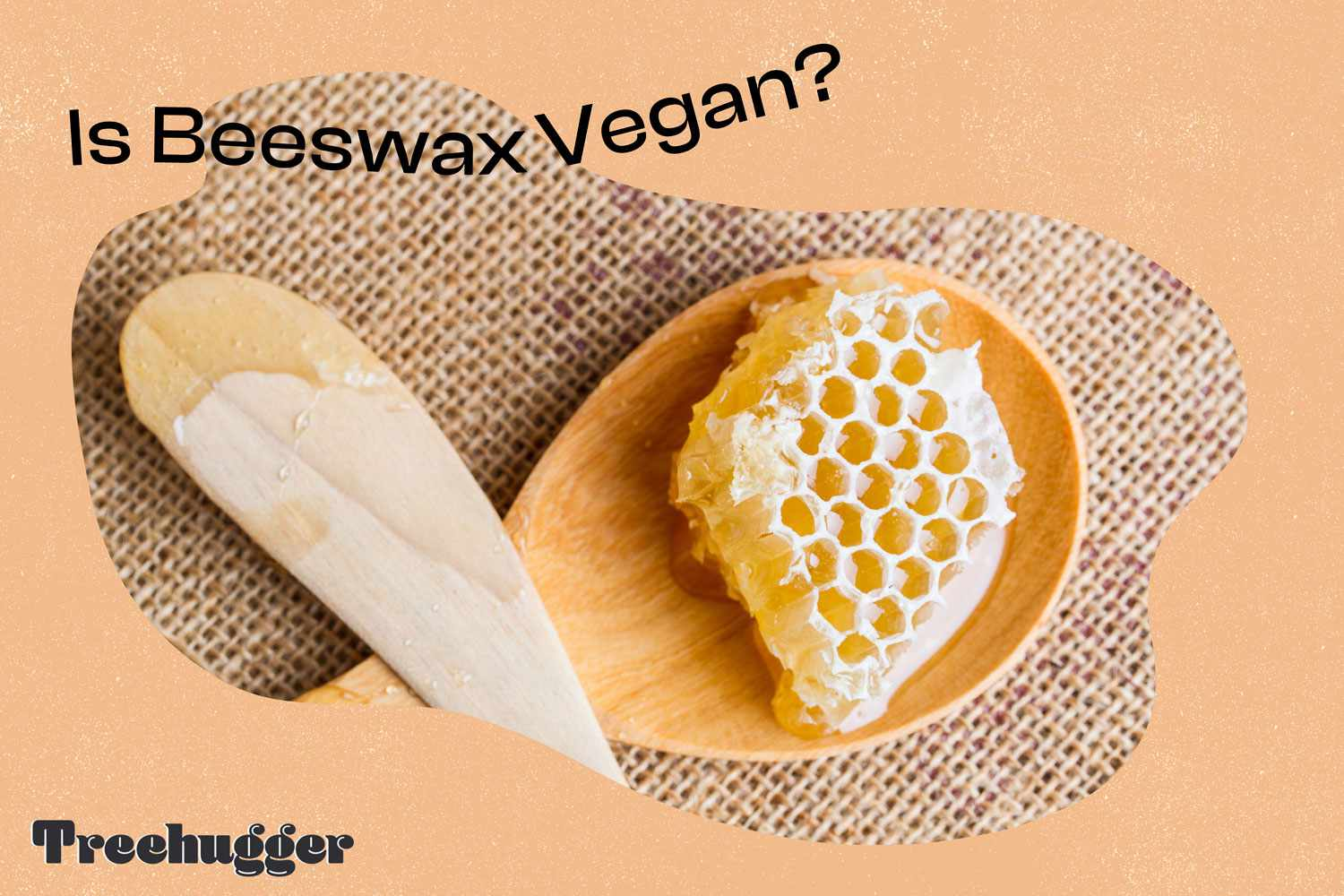
Can beeswax be organic?
Yes, beeswax can be certified as organic, just like other agricultural products. Organic beeswax is produced without the use of synthetic pesticides, antibiotics, or other chemicals that are not allowed in organic agriculture. Organic beekeepers must adhere to strict standards for the management of their hives and the production of their beeswax in order to receive organic certification.
To be certified as organic, beeswax must be produced by beekeepers who use organic practices, such as using natural methods to control pests and diseases, avoiding the use of antibiotics and other synthetic chemicals, and providing a habitat that is free from synthetic pesticides and fertilizers. In addition, the source of the beeswax must be traced back to the hive and cannot come from bees that have been treated with prohibited substances.
Organic certification for beeswax is not required, but it can provide assurance to consumers that the beeswax they are using was produced using environmentally sustainable and responsible practices. If you are interested in using organic beeswax, look for products that are certified organic by a recognized certification agency, such as the USDA National Organic Program (NOP) in the United States or the European Union Organic Farming Program in Europe.
Can bacteria grow in beeswax?
It is unlikely that bacteria will grow in beeswax, as beeswax has natural antibacterial properties that inhibit the growth of bacteria and other microorganisms. Beeswax contains propolis, which is a resinous substance produced by bees that have natural antimicrobial properties. The propolis in beeswax acts as a natural preservative, helping to protect the wax and the honey stored inside the hive from bacteria and other pathogens.
In addition, beeswax is relatively stable and does not provide a good environment for bacterial growth. Beeswax is an inert substance that does not contain water or nutrients that bacteria need to grow. Bacteria typically require a moist and nutrient-rich environment to thrive, which is not present in the beeswax.
However, it’s important to note that the quality of beeswax can vary based on how it is produced, handled, and stored. Poorly produced or contaminated beeswax could potentially harbor bacteria or other microorganisms, so it’s important to source beeswax from reputable suppliers and store it in a clean and dry environment. If you are using beeswax for food or personal care products, it’s also important to follow proper hygiene and safety practices to prevent contamination and ensure the safety of the final product.
How long does beeswax expire?
Beeswax is a natural and stable substance that does not expire or go bad. Beeswax can last for many years if stored properly in a cool, dry, and dark place, away from heat, moisture, and direct sunlight. If stored correctly, beeswax can retain its natural properties and consistency for a long time, without spoiling or becoming rancid.
Over time, however, beeswax can become brittle or lose its natural scent and color due to exposure to heat, light, or air. In addition, beeswax that has been contaminated with dirt, debris, or other substances may not be suitable for use in certain applications.
If you are using beeswax for food or personal care products, it’s important to source it from a reputable supplier and store it in a clean and dry environment to prevent contamination and ensure its safety. It’s also a good practice to inspect the beeswax periodically for signs of damage, such as discoloration, mold, or other visible signs of spoilage, and to discard any wax that appears to be contaminated or otherwise compromised.
How toxic is beeswax?
Beeswax is generally considered to be non-toxic and safe for use in food, personal care products, and other applications. Beeswax is a natural alternative produced by bees and does not contain any synthetic or harmful chemicals. In fact, beeswax is considered to be a natural alternative to many synthetic ingredients that are commonly used in cosmetic and personal care products.
Beeswax is also not known to cause any allergic reactions, although some individuals may be sensitive to other ingredients that are present in products that contain beeswax. It is also worth noting that some individuals may be allergic to bee stings or other bee products, such as honey or propolis, and may therefore also be allergic to beeswax.
However, it’s important to note that the safety of beeswax can depend on how it is produced, handled, and used. Beeswax that has been contaminated with pesticides, heavy metals, or other harmful substances could potentially pose a risk to human health, particularly if ingested or used in sensitive areas of the body. For this reason, it’s important to source beeswax from reputable suppliers and to use it in accordance with best practices for hygiene and safety.
In general, beeswax is considered to be a safe and versatile natural ingredient that offers many benefits for food, personal care products, and other applications. If you have any concerns about the safety of beeswax, it is always a good idea to consult with a healthcare professional or other qualified experts.
What is the purpose of beeswax wraps?
Beeswax wraps are a reusable and eco-friendly alternative to plastic wrap or aluminum foil that can be used to wrap food, cover bowls or dishes, or pack snacks or sandwiches. Beeswax wraps are made by infusing cotton or other natural fabrics with a mixture of beeswax, jojoba oil, and tree resin. The wax mixture creates a natural barrier that helps to keep food fresh and protected from air, moisture, and other contaminants, without the need for disposable plastic or other synthetic materials.
The purpose of beeswax wraps is to provide a sustainable and non-toxic alternative to traditional food storage and packaging methods that are harmful to the environment and can leach chemicals into food. Beeswax wraps are designed to be used repeatedly and can last for up to a year with proper care and maintenance. They are also compostable and biodegradable, meaning that they can be safely discarded at the end of their useful life without contributing to pollution or waste.
It is versatile and easy to use, as it can be shaped and molded to fit a variety of containers or food items. They can be used to cover leftovers, wrap sandwiches or snacks, or store fruits and vegetables in the refrigerator. Beeswax wraps are also a great option for picnics, travel, or outdoor activities, as they are lightweight and easy to transport.
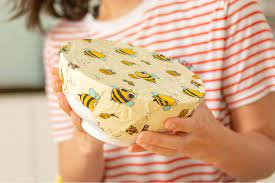
How hygienic are beeswax wraps?
It can be hygienic if they are used and cared for properly. Here are some tips for maintaining cleanliness:
Wash before use: Before using it for the first time, it’s a good idea to wash them with soap and water to remove any residual wax or debris.
Clean after use: After using, wipe them down with a damp cloth and mild soap to remove any food particles or stains. Avoid using hot water or abrasive cleaners, as these can damage the wax coating.
Avoid raw meat and high-risk foods: are not recommended for use with raw meat or other high-risk foods that can harbor harmful bacteria. Instead, use airtight containers or other food storage options for these items.
Rotate frequently: can be reused many times, but it’s a good idea to rotate them frequently and avoid using the same wrap for long periods of time.
Store properly: When not in use, store in a cool, dry place away from direct sunlight. Avoid storing them in high-humidity or high-temperature environments.
By following these tips, you can help ensure remain hygienic and safe for use with food. However, it’s important to note that it is not completely airtight or leak-proof, and may not provide the same level of protection as plastic or other synthetic materials. For this reason, it’s important to use them in accordance with best practices for food safety and to avoid using them with high-risk foods or in situations where food safety is a primary concern.

What is natural beeswax?
Natural beeswax is a substance produced by honeybees as part of their hive-building process. Beeswax is formed when worker bees consume honey and then excrete wax from special glands on their abdomen. The bees then use the wax to build honeycomb cells, which are used to store honey, pollen, and brood (developing bees).
It is a yellow to golden-brown color and has a characteristic honey-like aroma. It is composed primarily of esters, hydrocarbons, and fatty acids, and contains small amounts of pollen, propolis, and other bee products. Beeswax is solid at room temperature, but softens and becomes pliable when warmed.
It has many uses in food, personal care, and other applications. It is often used as a natural emulsifier, thickener, and stabilizer in food products, as well as a natural preservative and moisturizer in personal care products. Beeswax is also used to make candles, soaps, and other household items, and is a popular ingredient in natural and organic products.
It is considered to be a safe and non-toxic substance, as it does not contain any synthetic or harmful chemicals. However, it’s important to note that the purity and quality of beeswax can vary depending on how it is produced, harvested, and processed. To ensure the highest quality and purity, it’s important to source beeswax from reputable suppliers who follow best practices for beekeeping and wax processing.
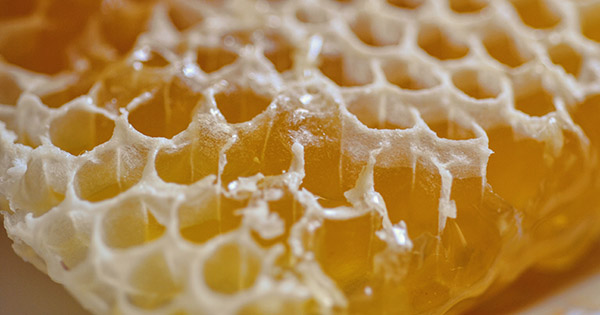
Are beeswax wraps safe for food?
Beeswax wraps are generally considered safe for use with food. Beeswax itself is a natural, non-toxic substance, and when used to make beeswax food wraps, it is usually combined with other natural ingredients such as cotton fabric, jojoba oil, and tree resin.
To ensure safety for food use, it’s recommended to purchase them from a reputable supplier that uses food-grade materials and follows best practices for manufacturing and handling. It’s also important to properly care by washing them regularly with mild soap and water, avoiding exposure to high temperatures or direct sunlight, and discarding any wraps that are damaged, torn, or otherwise compromised.
Leave a Reply